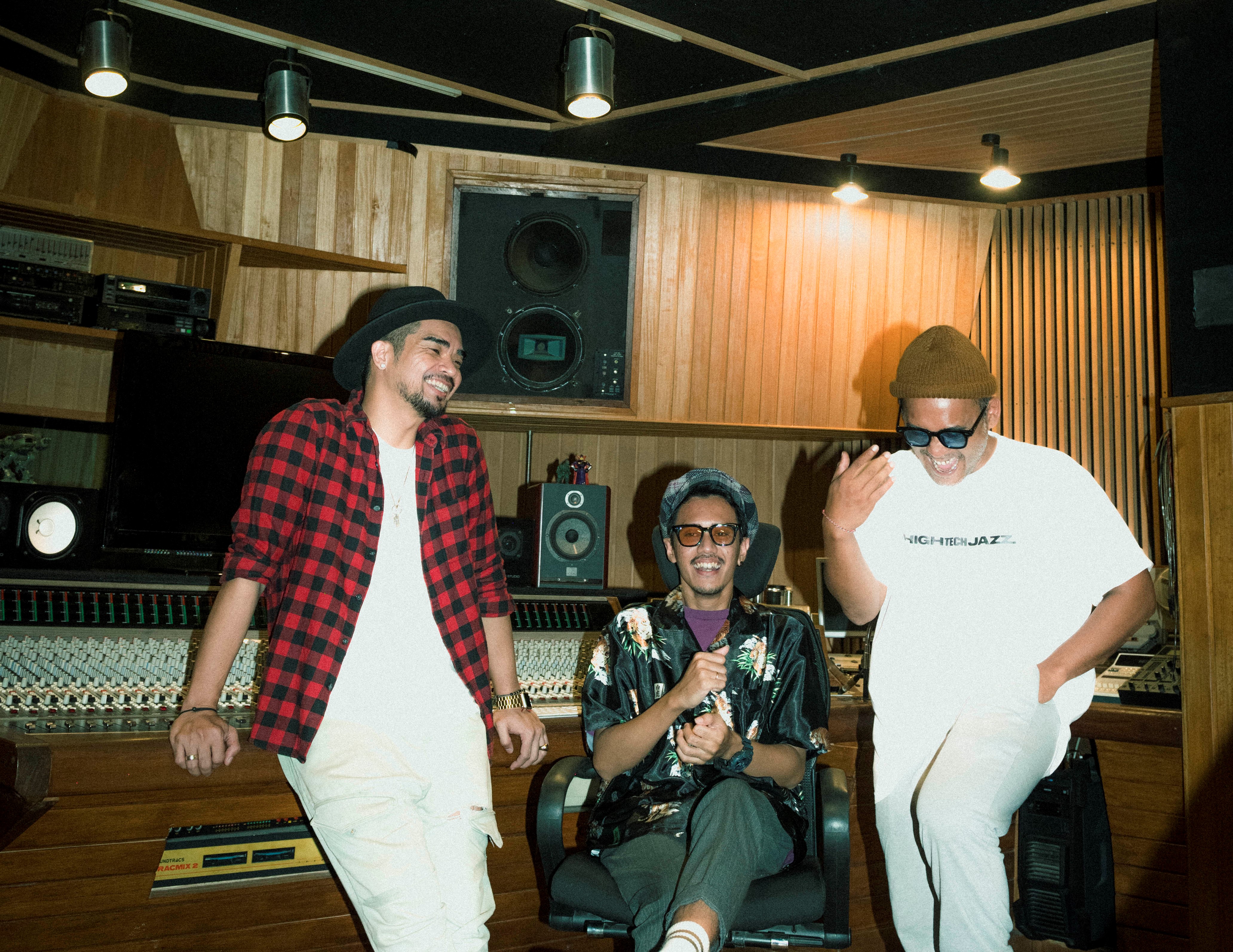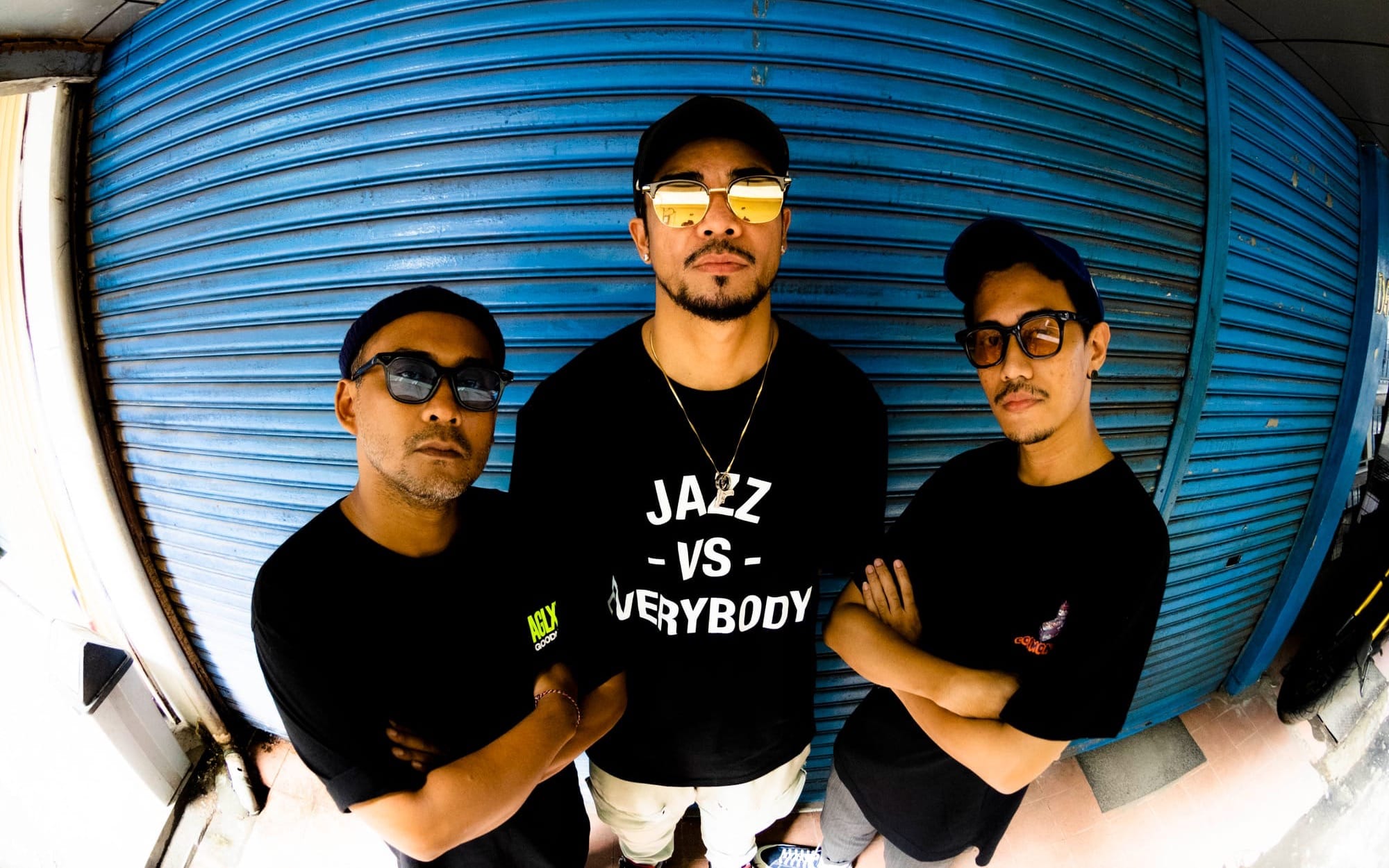Batavia Collective are a three-piece electronic jazz ensemble from Jakarta, Indonesia.
The members - Doni Joesran, Elfa Zulham and Kenny Gabriel – joined us for this long-distance discussion to mark the release of their new EP, BTVC, on Belgium-based R&S Records.
In four tracks totaling just over 15 minutes of music, Batavia Collective make their case – loudly and clearly – for Jakarta’s role as a key source of grooves in the burgeoning new-jazz movement.
Musicians worldwide are combining vintage sounds, modern technology, traditional jazz, the latest in hip hop, electronic music and more to create progressive new sounds as diverse as the locations they hail from. An exciting time for exciting music and Batavia Collective is an exciting group to hear.

Lawrence Peryer: How vibrant is the music scene in Jakarta? Are you part of a community of other instrumental or improvisational players?
Doni Joesran: Regarding the music scene in Jakarta, I would say that it's pretty vibrant, but the majority of genres are indie, pop, and rock. However, the jazz scene is also pretty established and growing. I'm proud to say that Jakarta is home to Java Jazz, which is the biggest jazz festival in Southeast Asia. I remember that during the mid-2010s, there were about 40 jazz festivals around Indonesia, but unfortunately, due to the pandemic and natural selection, we're now left with only around 10.
Elfa Zulham: Of course. As a musician, I feel that being part of this dynamic community is really exciting, and I'm fortunate to have shared the stage with some of our local legends like Indra Lesmana, Yance Manusama, and the late Benny Likumawuha, among others.
LP: How large or receptive is the local audience for the music you create? Indonesia is such a large, sprawling country; are there opportunities to pursue your creative path in your homeland or do you feel you need to relocate at some point?
Kenny Gabriel: To be honest, the music scene we're a part of here is pretty niche. It's not exactly electronic, and it's not exactly jazz, but we've been fortunate enough to play at some of the most significant festivals in Indonesia, such as Java Jazz, Synchronize Fest, Joyland Fest, and Potato Head Bali. In addition, we've been organizing our own events with Hura Garage to help build and grow the community. It's quite exciting to see how we can merge electronic and jazz musicians in the same event. In fact, our last event received support from Mixmag Asia. So to answer your question, it’s a yes, the locals have been pretty receptive to our music, and we're seeing growth in the scene.
DJ: I believe that there's a great opportunity for our music scene to grow, but we still need to wait for it to mature. Although I'm not convinced that relocating would be the best option right now, I would love to go on a tour soon, hopefully by the end of this year.
LP: Can you tell me a little about how the spirit, energy, or vibe of Jakarta is expressed in your music, if it is, and what special flavour Indonesian jazz in general has?
EZ : We tried as best as we can to capture the essence of Jakarta in our sound. It’s rough, its chaotic, its vibrant. But just like the city we take inspiration from, it’s also deep, funky, grimy and soulful. While we draw inspiration from the current global jazz scene, we also infuse a lot of Jakarta's attitude into it.
LP: You’ve spoken elsewhere about not wanting to be constrained or defined by genre. Labels aside, do you feel part of any lineage? Who might be the artists you feel a creative affinity towards?
DJ : I’m deep into Mehliana. Brad Mehldau and Mark Guiliana have completely shifted my perspective on what jazz can be. We're also big fans of the beat scene, and artists like Mono/Poly, Flying Lotus, and Shigeto have been huge inspirations for us. We'd love to explore a sound that's similar to theirs, and see where that takes us.
EZ : It’s Deantoni Parks. It's seriously like nothing else out there. He's got this amazing blend of jazz and hip-hop in his style, but he's always pushing the boundaries with incorporating elements of rock and electronic music into his beats. And get this, sometimes he even plays with his fingers instead of drumsticks, which gives his rhythms this really unique and natural vibe. It's like nothing else out there.
KG: Louis Cole. The thing I love about him is how hard it is to put him in just one box. You know what I mean? His sound is so unique and playful, with all sorts of unexpected twists and turns. He's not afraid to experiment and try new things, which makes for some really interesting and unconventional sounds. It's just a super fun and whimsical vibe overall.
LP: That is all amazing music and I hear how you fit in with those artists. Not because you are copying their sounds, but because I can hear that same striving to blend the spirit of jazz with electtonic sounds to do something your own.
Louis Cole is fascinating to me, the way he seems to have created his own universe of collaborators and in the way he infuses his music with humour. Sometimes the only reaction I can have to some of the things he plays is too laugh – the sheer technical ability and his confidence is so striking.
Similarly, the four songs on BTVC are striking in their confidence and sense of being full statements. Could you tell me a bit about how the Collective’s sound came together? In some regards this sounds like the music of three very skilled musicians just plugging in and playing, yet there is also a sense of intention and polish in the arrangements. How much discussion went into what you three wanted the music to sound like? And is that an ongoing dialogue for each track?
DJ : To tell you the truth that’s what we did, plug and play. Afterward, we'll have a listening session together where we break down the parts that we like and work on refining the composition.
Sometimes, one of us will come in with an idea, and we'll all work together to build on it and see where it takes us. It's a very collaborative process, and we're all open to bouncing ideas off each other and seeing where the music takes us. Overall, we're focused on the music itself and letting our creativity flow, rather than getting too caught up in the technical aspects of production.
EZ : We actually got a lot of inspiration for the EP from our previous project with the Goethe Institut. We did a tribute to Jakarta, our hometown, and tried to capture the city's vibe at different times of the day. It was really cool to work on that project and it definitely influenced the sound of our EP. We wanted to show off the energy, diversity, and unique character of Jakarta through our music. So yeah, the city played a big role in shaping this EP and we're really proud of it.
LP: What material can someone who buys a ticket expect to see the Collective perform? Are you performing only your own material or are you mixing in covers?
KG : To be honest, we mostly stick to playing our own stuff. But every now and then, we might throw in a little twist by reworking a song or two. It's just a fun way for us to show off our creativity and put our own spin on some of our favorite tunes.
###
Curious readers can check out Batavia Collective’s new EP, BTVC (released May 5, 2023 on R&S Records), on streaming services worldwide or directly from the label on Bandcamp.







Comments